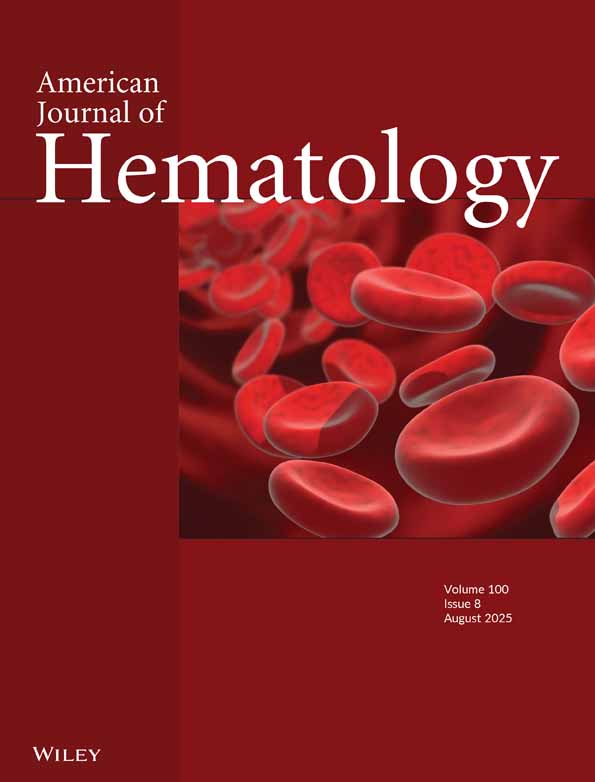Multicenter prospective trial evaluating the tolerability of imatinib for Japanese patients with chronic myelogenous leukemia in the chronic phase: Does body weight matter?†
Conflict of Interest: Nothing to report.
Abstract
Imatinib at a daily dose of 400 mg is the standard treatment for chronic myelogenous leukemia in the chronic phase. However, the feasibility of this dose for small Japanese adults has not been clarified. We prospectively investigated the toxicity and efficacy of this dose in adult Japanese patients. Among the 89 evaluable patients with a median body weight of 62.8 kg, imatinib therapy was held in 40 subjects (45%), due to Grade 3–4 toxicities in 30 patients (75%) and Grade 2 toxicities at the discretion of the attending physician in 10 patients (25%). However, treatment was resumed and the dose was gradually increased until 62 of the 89 patients tolerated a maintenance dose of 400 mg. Older age and lower body weight were significant independent risk factors for discontinuation of imatinib. After a median follow-up period of 31 months, 84 patients were alive without progression. The complete cytogenetic response rate was 60 and 90% at 6 months and 1 year after starting imatinib, respectively. Older patients and those with a lower body weight were less likely to achieve a complete cytogenetic response. These findings suggest that the body weight has a significant influence on the toxicity and efficacy of imatinib in patients with a small body size, although dose reduction in proportion to weight may result in an inadequate response to imatinib. Am. J. Hematol., 2008. © 2008 Wiley-Liss, Inc.




